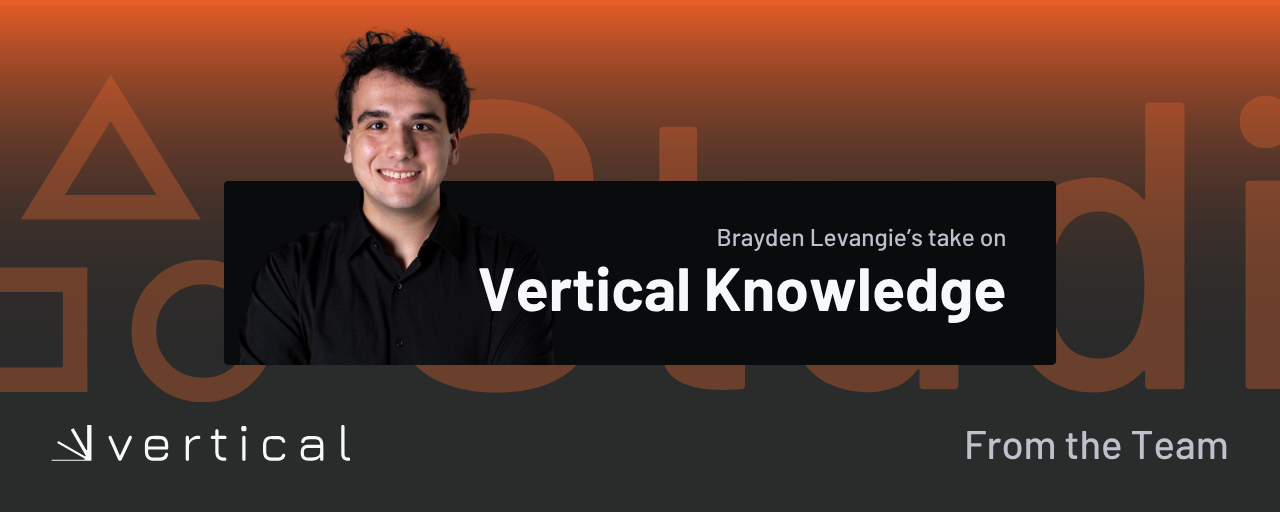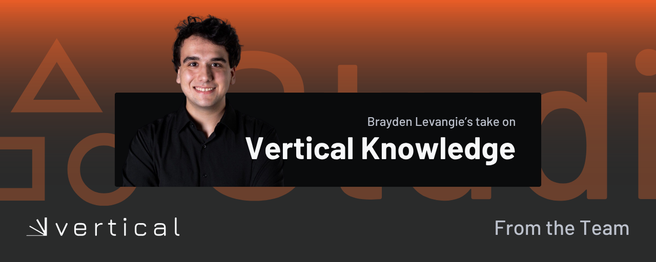Beyond RAG: How Vertical Knowledge Redefines AI Comprehension
Published on October 28, 2025 · 5 min read

What Is Vertical Knowledge?
Vertical Knowledge is an AI-powered universal knowledge transformation platform that breaks down the barriers between different media formats and large language models.
At its core, the system ingests any type of information—PDFs, Word documents, PowerPoint presentations, audio recordings, spreadsheets, even MP4 videos with audio—and transforms them into a unified semantic representation using 1024-dimensional vector embeddings.
When you upload a research paper, the system doesn’t just store the file; it intelligently extracts the text using MarkItDown, detects the document structure (identifying sections like abstracts, methods, conclusions), breaks it into semantically meaningful chunks using AI-powered boundary detection (not arbitrary character limits), and generates mathematical representations of the meaning using VoyageAI’s voyage-3-large model.
For audio files, it automatically transcribes speech to text using OpenAI’s Whisper, then applies the same semantic processing.
This means an LLM can now “understand” a podcast episode, a PDF textbook, a PowerPoint lecture, and an Excel dataset all in the same way — as semantically indexed chunks of knowledge stored in a vector database where similarity is measured by meaning, not keywords.
When you ask a question in natural language, the system generates a vector representation of your query, finds the most semantically similar chunks across ALL your media formats, and returns contextually relevant information with source attribution — effectively giving LLMs perfect memory and comprehension across every medium of human knowledge.
Why This Destroys Basic RAG
Basic RAG (Retrieval-Augmented Generation) is like using a dull knife to solve a surgical problem — it technically works, but it’s primitive and leaves precision on the table.
Most RAG implementations do naive chunking (splitting every 512 characters or tokens regardless of context), use simple embeddings, perform basic cosine similarity search, and dump whatever chunks score highest into the LLM’s context window without any intelligence about what those chunks actually contain or how they relate to each other.
Vertical Knowledge is surgical-grade RAG because it employs hierarchical intelligent chunking that respects semantic boundaries — it won’t cut a sentence in half or split a code block arbitrarily; instead, it uses SemanticChunker to understand topic transitions and RecursiveChunker to respect document structure (paragraphs, sections, lists).
It enriches chunks with contextual metadata like document titles, section headers, authors, and abstracts, so when a chunk about “this algorithm” is retrieved, the system knows it’s from the “Neural Networks” section of a paper by Smith et al., making it infinitely more useful to an LLM.
The system implements context-aware embedding enhancement — for research papers, it prepends the abstract to each chunk before embedding, dramatically improving retrieval accuracy because the embeddings now carry document-level context, not just isolated paragraph meaning.
It features selective search capabilities (include/exclude specific documents), multi-format intelligence (treating audio transcriptions with the same semantic sophistication as PDFs), and strict user isolation with access control that prevents data leakage in multi-tenant environments.
Basic RAG gives you “close enough” chunks; Vertical Knowledge gives you the exact right context from the exact right source with full provenance tracking, multiple chunking fallback strategies to handle edge cases, deduplication via content hashing, processing status tracking, search history analytics, and the ability to generate Alpaca-format training datasets from your knowledge base to fine-tune models specifically on your domain — transforming RAG from a simple retrieval mechanism into a complete knowledge intelligence platform.
Brayden




